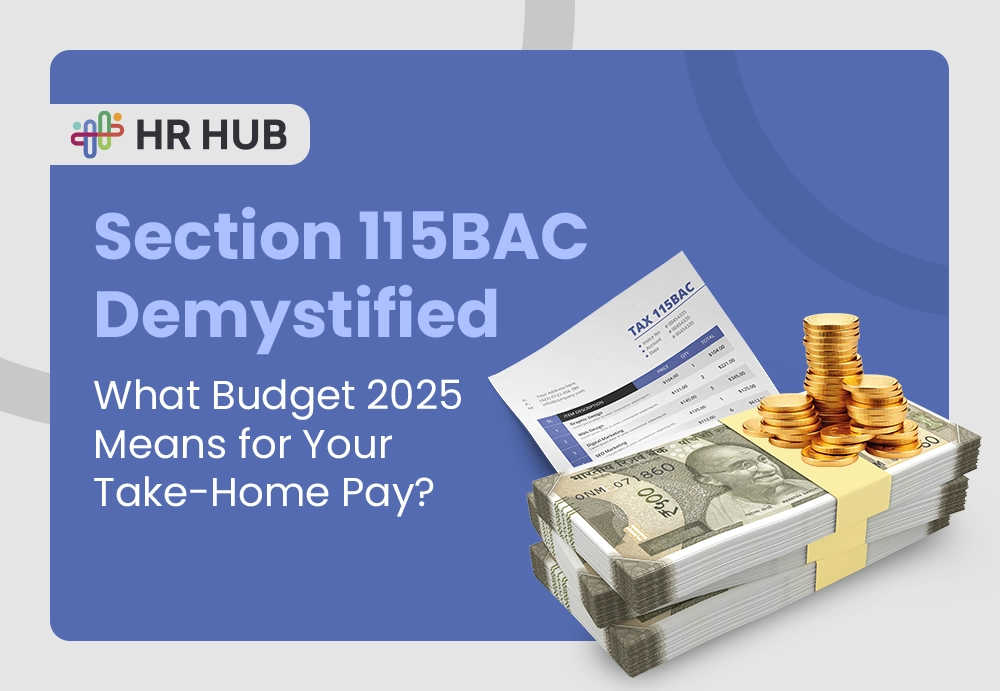The field of human resources (HR) management has changed significantly in the current digital era. As technology has advanced, numerous systems with unique features and functionalities that are intended to simplify HR procedures have emerged.
HRIS, HRMS, and HCM systems are among the most often seen systems. But what distinguishes them specifically? This blog will definitely clear your doubts, as you'll find the basic information and even the comparison table that mentions all the information.
Understanding the Basics: HRIS vs HRMS vs HCM Systems
Let's examine the differences to see which one best meets your company's requirements.
What is HRIS?
The information management system that is used to gather, store, and evaluate human data is called the Human Resource Information System, or HRIS. It acts as a centralized database for payroll, attendance, performance management, and benefits administration—all crucial HR operations. HRIS's primary focus is data management, which provides insights into workforce trends, demographics, and regulatory requirements.
For instance, in the booming HR software industry, HRIS is necessary to ensure regulatory compliance with labor laws and regulations unique to the specific market. Because of its comprehensive reporting features, HR executives may successfully enhance workforce strategy and make data-driven decisions.
What is HRMS?
Regarding features, HRMS (Human Resource Management System) is more comprehensive than HRIS. It incorporates essential HR activities with modules for talent management, onboarding, training, and recruitment in addition to handling employee data. HRMS streamlines workflows and improves efficiency all around by facilitating HR procedures from hiring to retirement.
Since HRMS solutions are scalable and have extensive feature sets, they frequently rank highest when considering the best HRIS systems for large businesses. These systems enable easy interaction with current company systems and customization options to meet the complicated needs of large enterprises.
What is HCM?
The Human Capital Management (HCM) System intentionally emphasizes maximizing the value of human capital inside an organization, raising the bar for HR management. It includes talent acquisition, engagement, development, and strategic workforce planning in addition to the administrative facets of HR. Innovation and commercial success are fostered by HCM systems that synchronize HR strategy with corporate goals.
people is the source of innovation in the fast-paced world of IT firms, and HCM solutions are critical to luring and retaining top people. These solutions help IT companies remain ahead of the competition, encourage innovation, spot talent gaps, and promote a culture of continuous learning and employee engagement by leveraging analytics and predictive insights.
Comparison Table: HRIS vs HRMS vs HCM Systems
Certainly! Here's a comparison of HRIS, HRMS, and HCM systems in a tabular format:
|
Feature
|
HRIS
|
HRMS
|
HCM
|
|
Focus
|
Data Management: Gathering, storing, and analyzing employee data
|
Comprehensive HR Functions: Integrates core HR processes
|
Strategic HR Management: Aligns HR initiatives with business goals
|
|
Core Functions
|
-
Payroll
-
Attendance
-
Performance
-
Management
-
Benefits Administration
|
-
Recruitment
-
Onboarding
-
Training
-
Talent Management
|
-
Workforce Planning
-
Talent Acquisition
-
Engagement
-
Development
|
|
Scope
|
Limited to data management and basic HR functions
|
Encompasses a broader range of HR processes and workflows
|
Focuses on strategic HR initiatives and maximizing human capital
|
|
Ideal For
|
Small to Medium-sized businesses
|
Large Enterprises
|
Organizations prioritizing strategic HR management
|
|
Customization
|
Limited customization options
|
Offers customization for diverse needs and scalability
|
Tailored solutions to meet specific organizational requirements
|
|
Industry Application
|
General HR functions and compliance management
|
Versatile application across industries, including large enterprises
|
Particularly beneficial for industries reliant on skilled talent
|
|
Example
|
Managing employee records and payroll processing
|
Streamlining recruitment processes and employee onboarding
|
Strategic workforce planning and talent development initiatives
|
|
Integration with Business
|
Basic integration with other systems for data exchange
|
Seamless integration with enterprise systems for holistic HR management
|
Integrates HR with overall business strategy and objectives
|
|
Key Benefit
|
Efficient data management and compliance adherence
|
Comprehensive HR process automation and workflow optimization
|
Strategic alignment of HR with organizational goals for business success
|
Choosing the Right System for Your Organization
As you navigate the plethora of possibilities on the market, it is critical to evaluate the specific needs, scalability requirements, and long-term strategic goals of your firm. For smaller businesses, HRIS is the best option for basic data administration and compliance, but HRMS provides a more complete set of capabilities. HCM systems, on the other hand, are designed for businesses that want to turn human resources (HR) from a support role to a strategic ally in achieving success.
Making the Right Choice: HRMS vs. HRIS vs. HCM
In conclusion, various criteria, including organizational size, industry dynamics, and strategic goals, influence the decision between HRIS, HRMS, and HCM systems. By having a thorough awareness of the subtleties of each system, HR professionals can build a culture of innovation and growth and make educated decisions that correspond with their organization's changing needs.
Investing in the appropriate HR technology is critical in this competitive HR software market, where businesses aim to draw in, nurture, and keep top personnel. Choosing the correct system can be a game-changer in fostering organizational success in today's fast-paced business environment, regardless of whether you're a huge firm looking for the best HRIS solutions or an IT company hoping to harness the power of HCM.






